The MSc degree in Forest Engineering and Natural Resources
Forests and the MSc that aims at adapted and resilient forests
Forests...
… store carbon, provide wood in a sustainable way and are vital for the preservation of water, soil and air quality
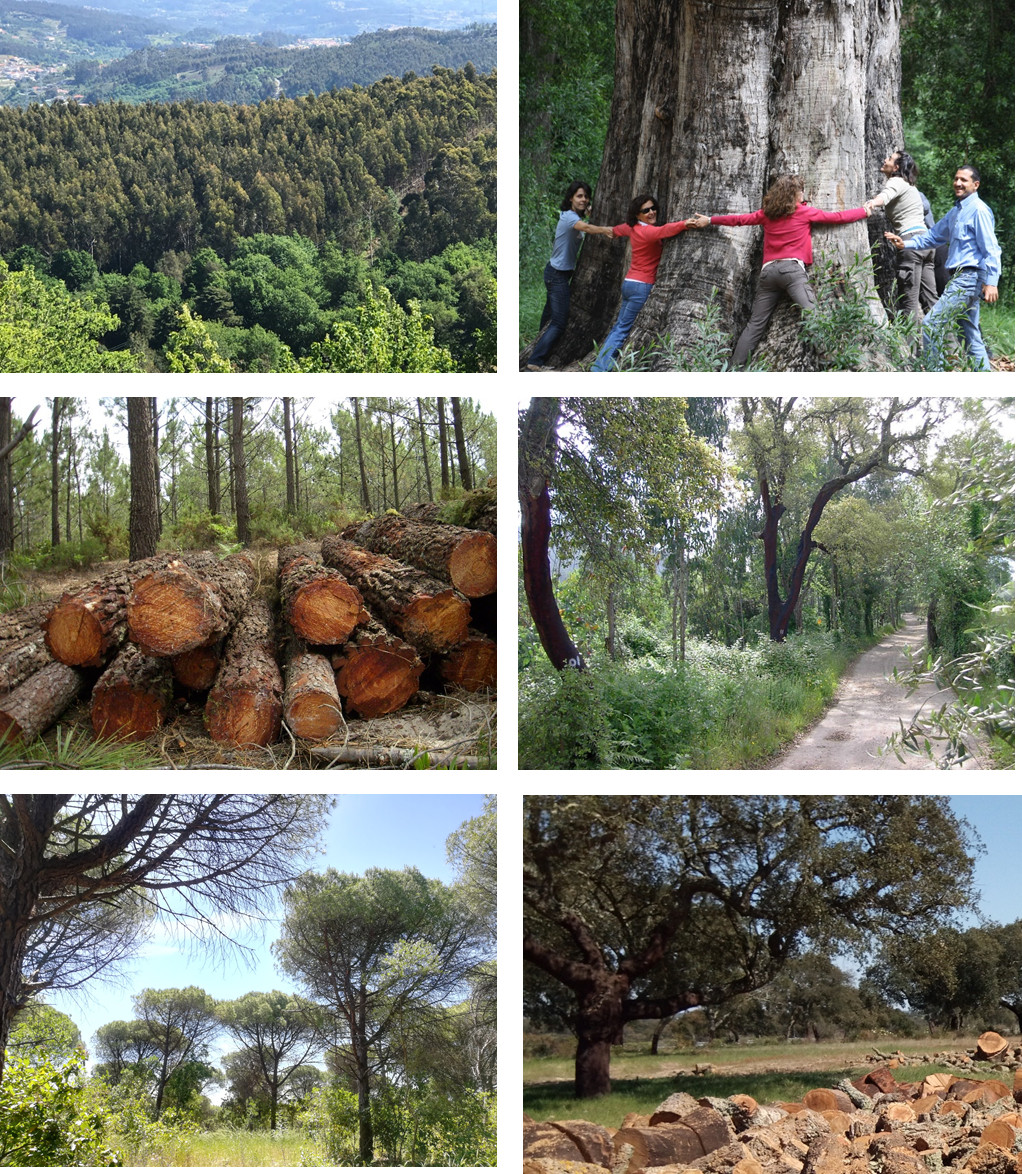
Forests cover more than 1/3 of Europe’s surface, a total of 227 thousand ha and their that keep increasing. Over the past 3 decades, along with the expansion of forest area, wood volume and carbon sequestration increased 50%, contributing to reduce carbon dioxide emissions. In 2015, 36% of portugal was classified as forest.
… contribute to biodiversity conservation while producing a multitude of natural, reusable and recyclable products
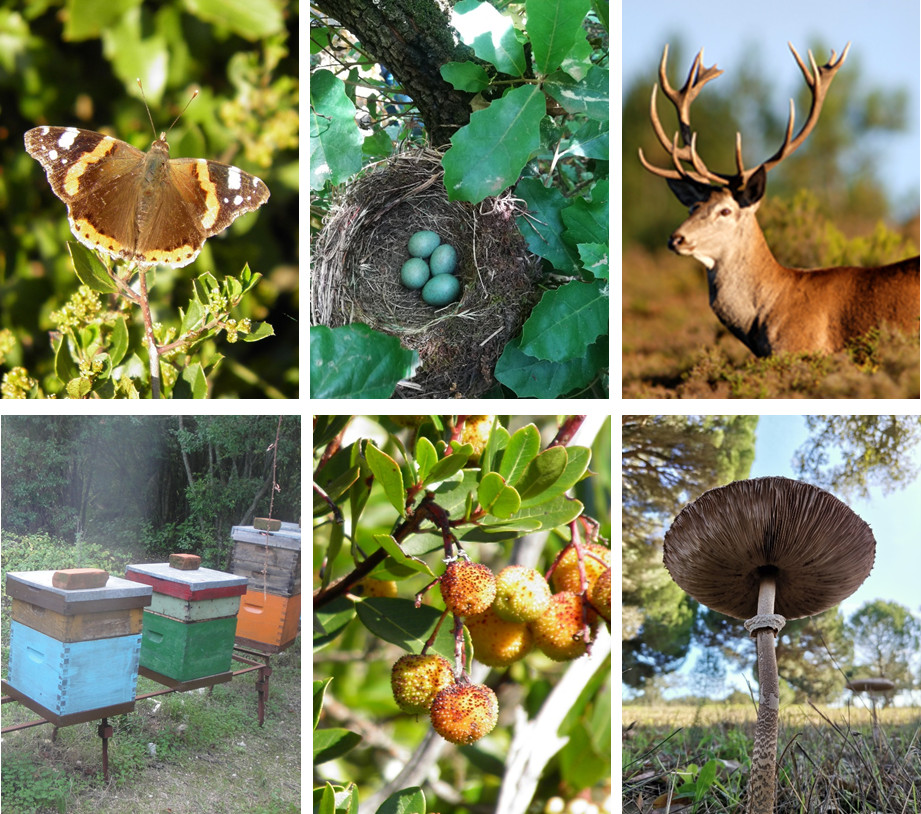
Forests are semi-natural habitats with a diversity of species in forest areas being responsible for biodiversity conservation, soil protection against erosion, purification and regulation of the water cycle, among other services. At the same time, forests and forest industries contributed with 4.98% to Portugal's GDP in 2021, having generated more than 100,000 jobs in 2019.
… nevertheless, forests face threats to their vitality that affect not only their economic sustainability but all the biodiversity they integrate
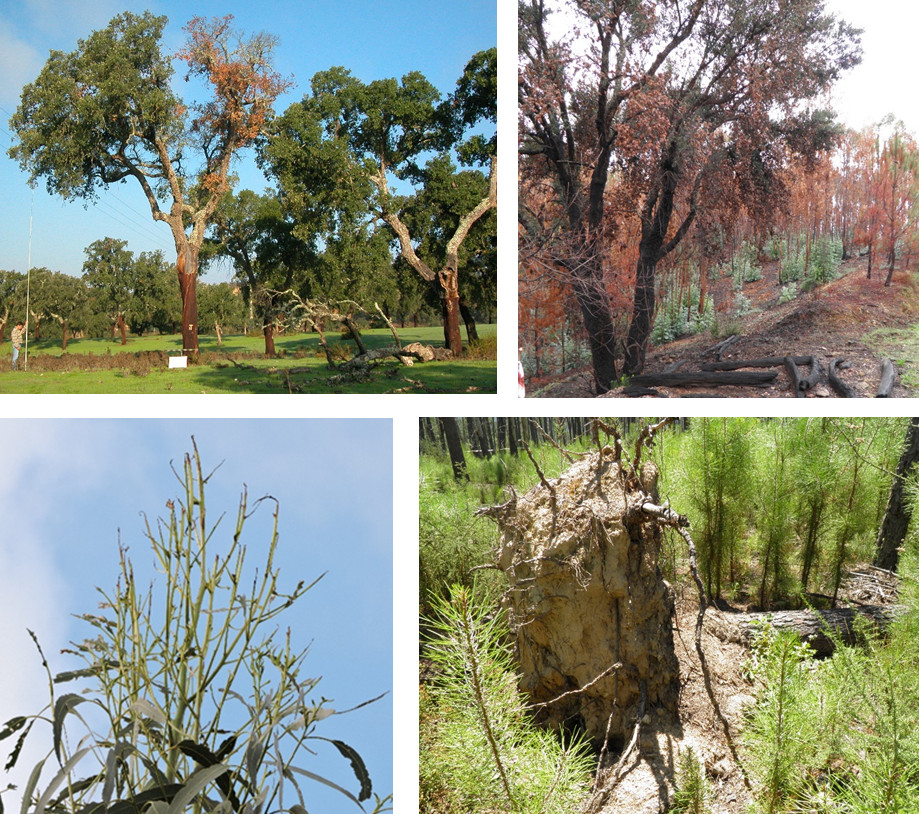
The negative consequences of (a)biotic agents can have devastating impacts in ecosystems at local and landscape level. The increase in frequency, intensity and duration of such events (extreme droughts, heat waves, rural fires, pest attacks,...) compromises the profitability of forest holdings and, consequently, an adequate forest management.
The MSc degree in Forest Engineering and Natural Resources
The MEFRN is a two-year programme during which, students develop an understanding of the functioning and dynamics of forest ecosystems, professional and practical skills required to manage different aspects of forest ecosystems with the aim of building healthy, profitable and sustainable forests so these can meet future challenges.
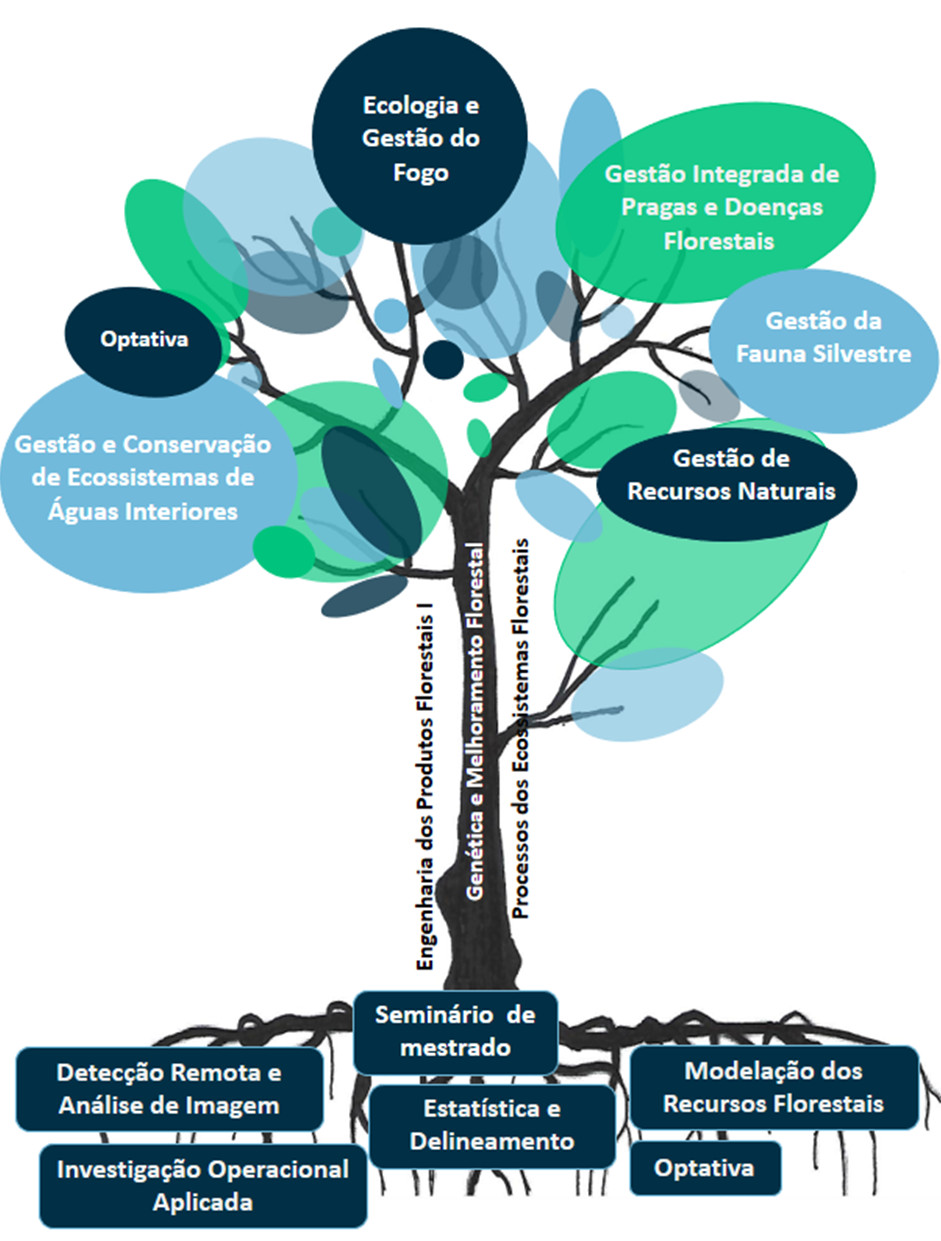
The MSc degree in Forest Engineering and Natural Resources aims to train professionals with specialized knowledge to:
- sustainably manage forest and agro-forestry ecosystems, as well as wooded spaces in urban areas, to meet social, socio-economic and environmental objectives;
- manage and restore forest areas and wooded spaces adaptively to mitigate the effects of global changes (e.g. fire and droughts);
- critical understanding and integrate information tto solve major societal challenges (e.g. sustainable intensification, compatibility of forest production, agriculture with nature conservation);
- design management and policy instruments for a sustainable supply of (non-)wood products and ecosystem services;
- use innovative and interdisciplinary approaches to plan sustainable and resilient landscapes;
- contribute to solving global challenges based on solid scientific knowledge in a critic and innovative way;
- use up-to-date technologies for collecting and processing information;
- communicate to different audiences all aspects related to the management and conservation of forest ecosystems using new technologies ;
Lecturer:
- contribute significantly to the transfer of knowledge in the area of Forest Sciences and biodiversity;
- integrate the teams of structuring projects in the fields of forest protection, management and planning in the national context interacting with public bodies and the private sector;
- are publicly recognised for their professional value.
MEFRN students:
- may have different backgrounds from Forestry Engineering (which enhances the recruitment of new students);
- have a high level of approval in the course modules, in general, concluding the graduation in the number of curricular years;
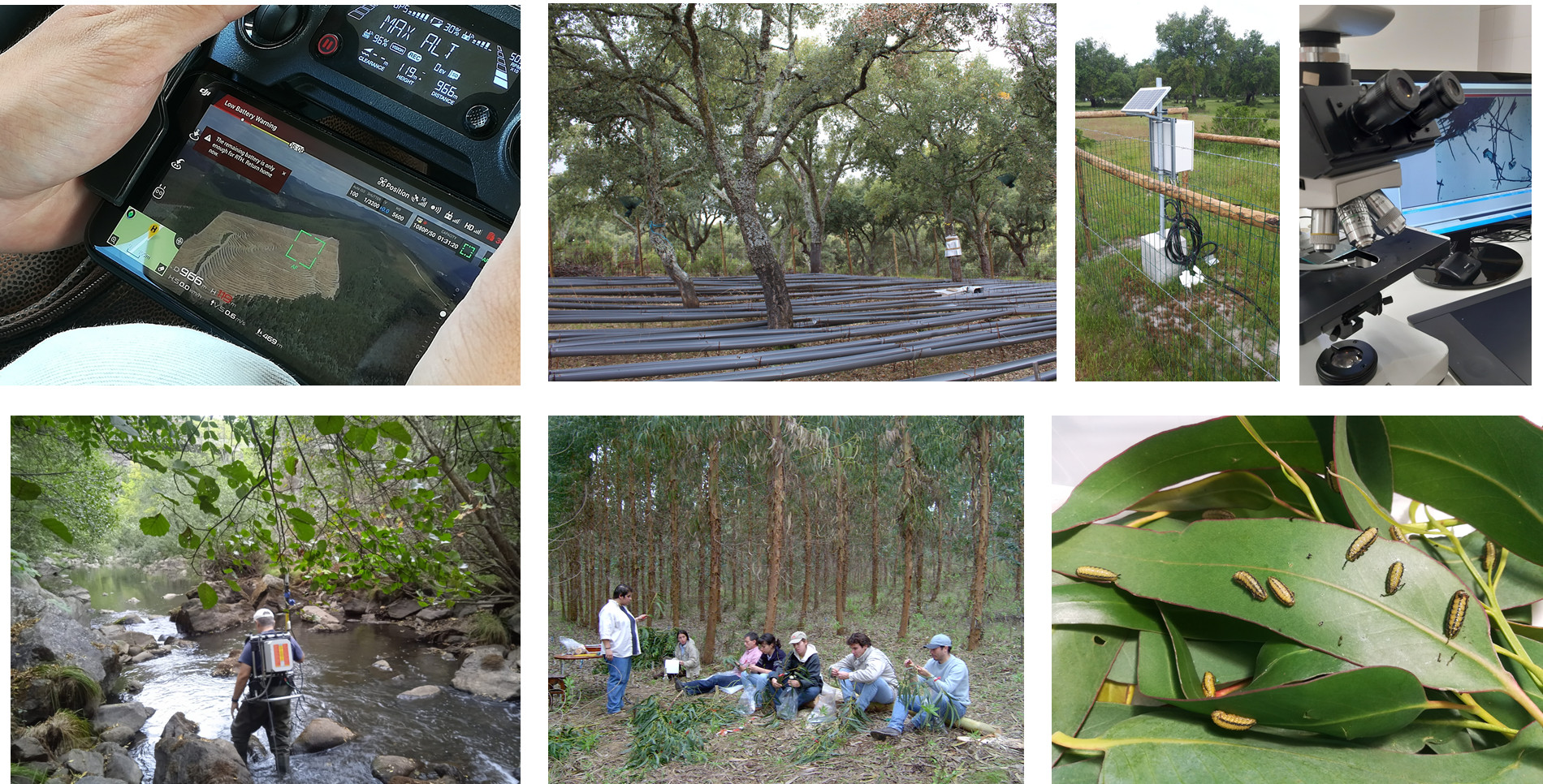
- may, if they wish, collaborate in research projects involving students in reseach activities, by mean of:
- research initiation scholarships;
- voluntary work (paid or not);
- preparation of the dissertation work;
MEFRN graduates:
- have solid and transversal scientific, technical and human skills to the fields of forest, agriculture, landscape, environmental change and economy;
- are professionals able to analyze, conceive, design and guide the implementation of innovative work for the development of a multipurpose forest sector;
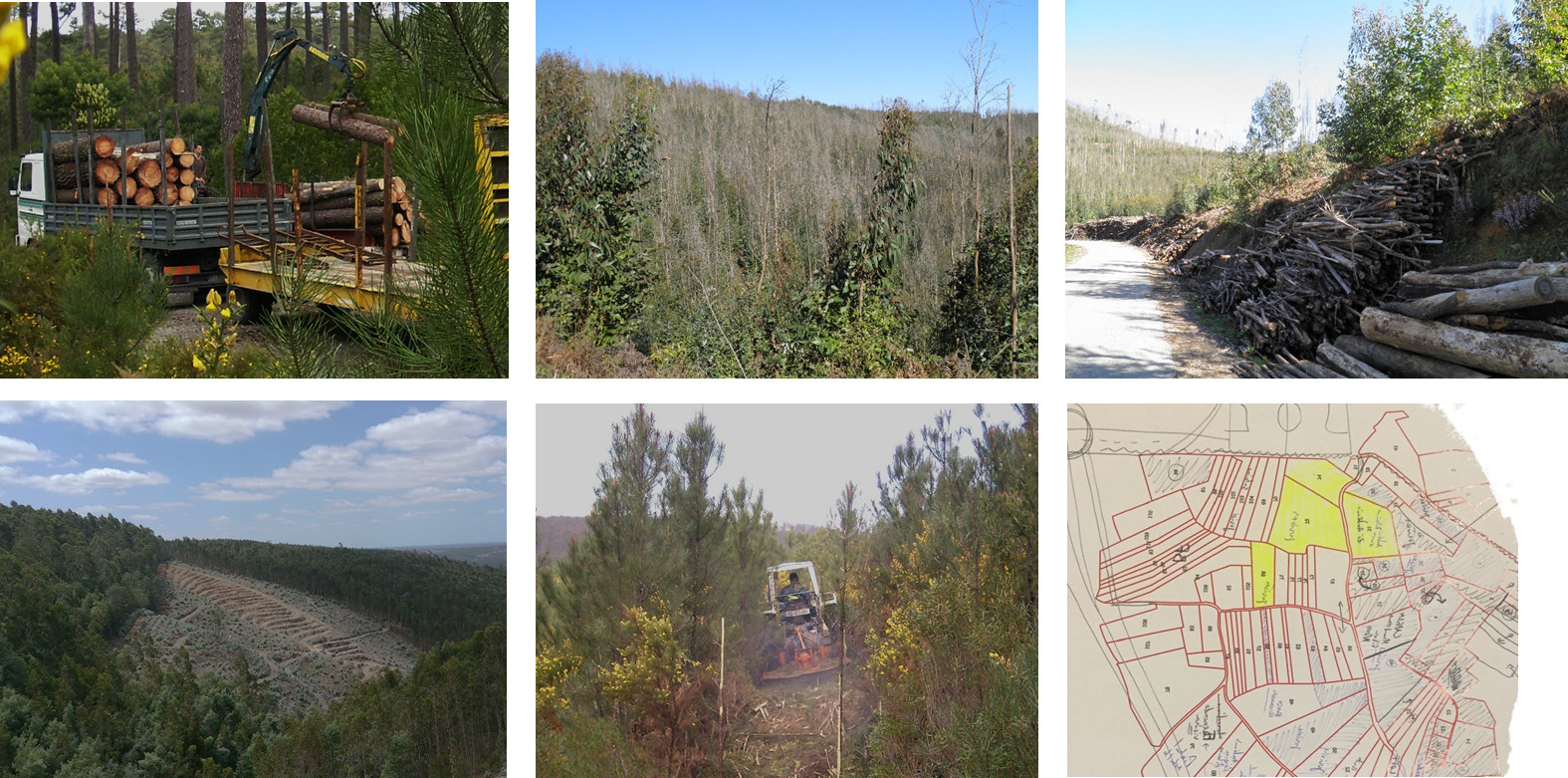
- are able to meet the challenges forests are facing, namely:
- the high percentage of private area (~97%);
- fragmented and small properties (~0.5 ha);
- unidentified forest owners and lack of land registry;
- poor forest management and need for technical support;
- reduced forest planning at landscape scale;
- low profitability of forests and high costs of silvicultural operations;
- poor implementation of forest policies;
- recurrent forest fires and logistical difficulties in transporting timber;
- difficulty in valuing ecosystem services;
The MEFRN also has:
- high employability, especially in the private sector;
- recognition by Ordem dos Engenheiros - mark of quality;